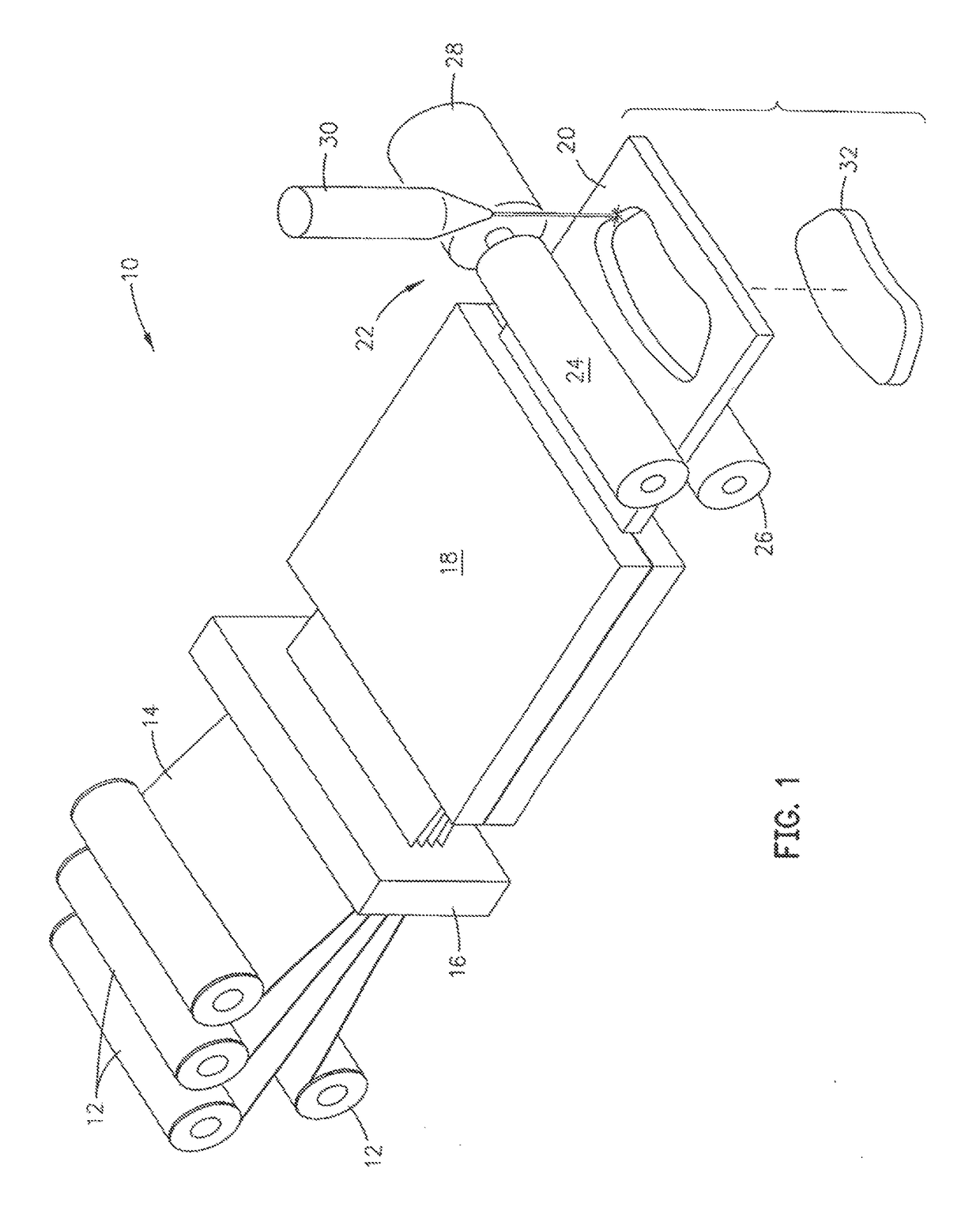Composite friction elements and pultrusion method of making same
a technology of friction elements and friction elements, which is applied in the direction of friction elements, friction linings, other domestic articles, etc., can solve the problems of releasing potentially harmful amounts of it into the environment, affecting the quality of friction units made by this method, and consuming a lot of resources
- Summary
- Abstract
- Description
- Claims
- Application Information
AI Technical Summary
Benefits of technology
Problems solved by technology
Method used
Image
Examples
example 1
[0081]A suitable test sample of the product was produced having the composition of a wetting agent of about 0.035%, Barytes (BaS04) of about 5.5%, Copper of about 6.9%, walnut flour of about 2.8%, Talc Nytal (CaMgSilicatelH20) of about 2.8%, graphite of about 3.5%, Zinc Oxide (friction enhancer) of about 4.1%, Aluminum Oxide (friction enhancer) of about 4.1% and Axel 1850 (mold release) of about 0.7%. The final product had about 46.0 wt % glass, about 30.30 wt % filler and about 33.7 wt % resin. The glass was PPG E type phenolic sized woven fabric.
example 2
[0082]
Raw MaterialWeight PercentPhenolic Resin12.66Barium Sulfate15.19Potassium Titanate12.66Kevlar2.53Calcium Fluoride5.06Antimony Trisulfid2.53Zircon2.53Aluminum Oxide1.27Syn Graphite7.59Coke 92.53Cashew Particles7.59Rubber5.06Calcium Oxide1.27Ceramic Fiber3.80Vermiculite10.13Copper7.59
example 3
[0083]
Raw MaterialWeight PercentPhenolic Resin10.53Barium Sulfate18.42Steel Wool 20521.05Kevlar0.00Calcium Fluoride 5.26Zinc Sulfide2.63Zircon3.95Aluminum Oxide1.32Syn Graphite7.89Coke 92.63Cashew Particles2.63Rubber5.26Calcium Oxide1.32Ceramic Fiber3.95Vermiculite10.53Copper2.63
PUM
 Login to View More
Login to View More Abstract
Description
Claims
Application Information
 Login to View More
Login to View More - R&D
- Intellectual Property
- Life Sciences
- Materials
- Tech Scout
- Unparalleled Data Quality
- Higher Quality Content
- 60% Fewer Hallucinations
Browse by: Latest US Patents, China's latest patents, Technical Efficacy Thesaurus, Application Domain, Technology Topic, Popular Technical Reports.
© 2025 PatSnap. All rights reserved.Legal|Privacy policy|Modern Slavery Act Transparency Statement|Sitemap|About US| Contact US: help@patsnap.com



